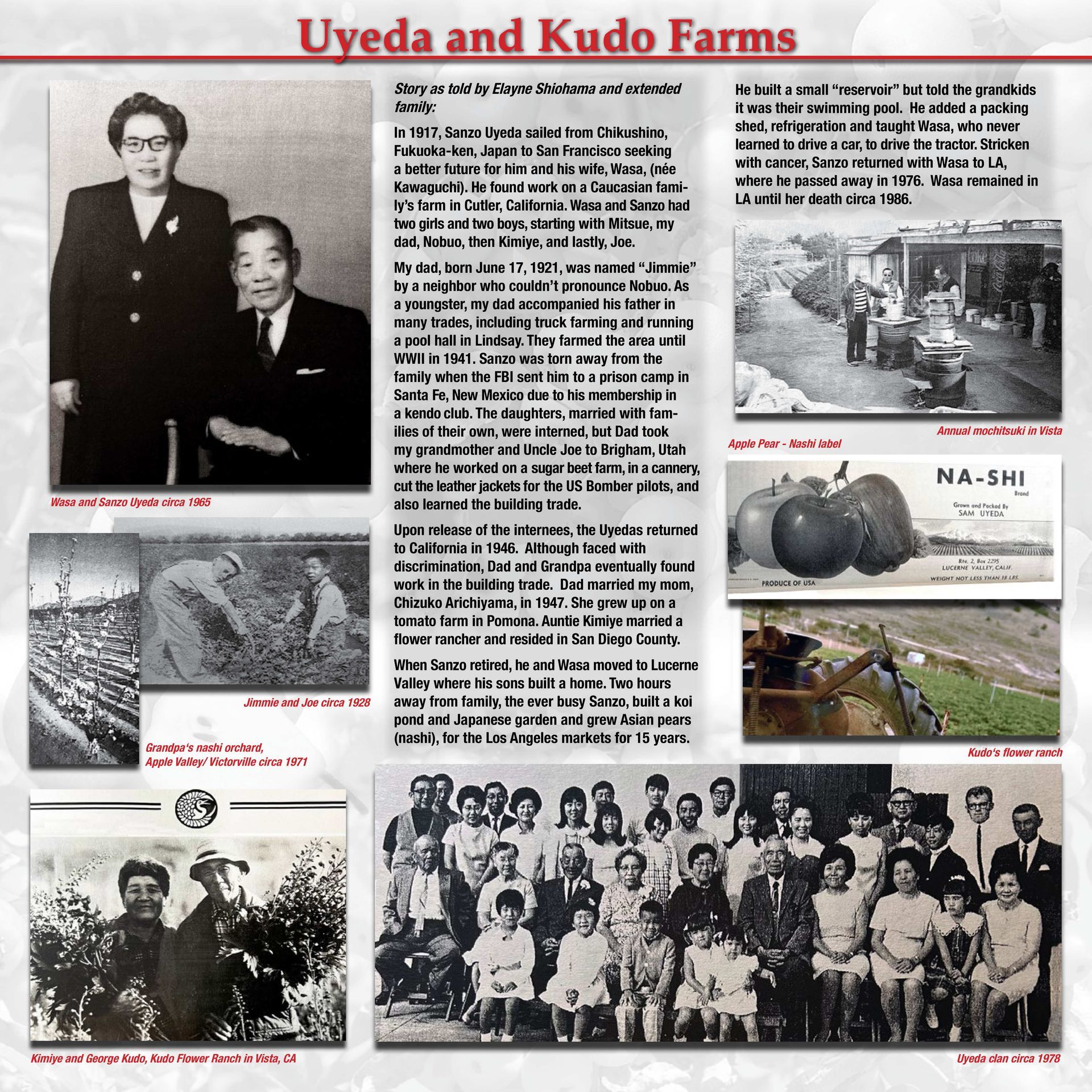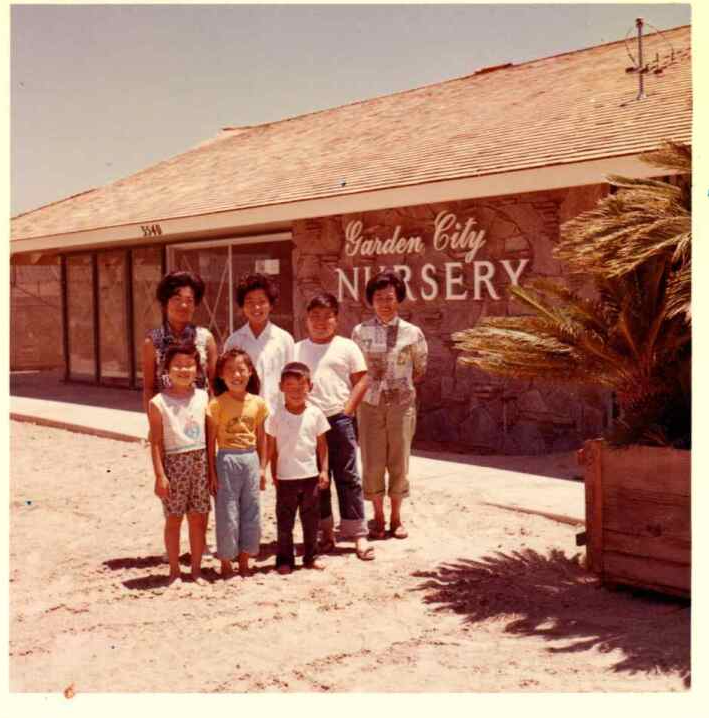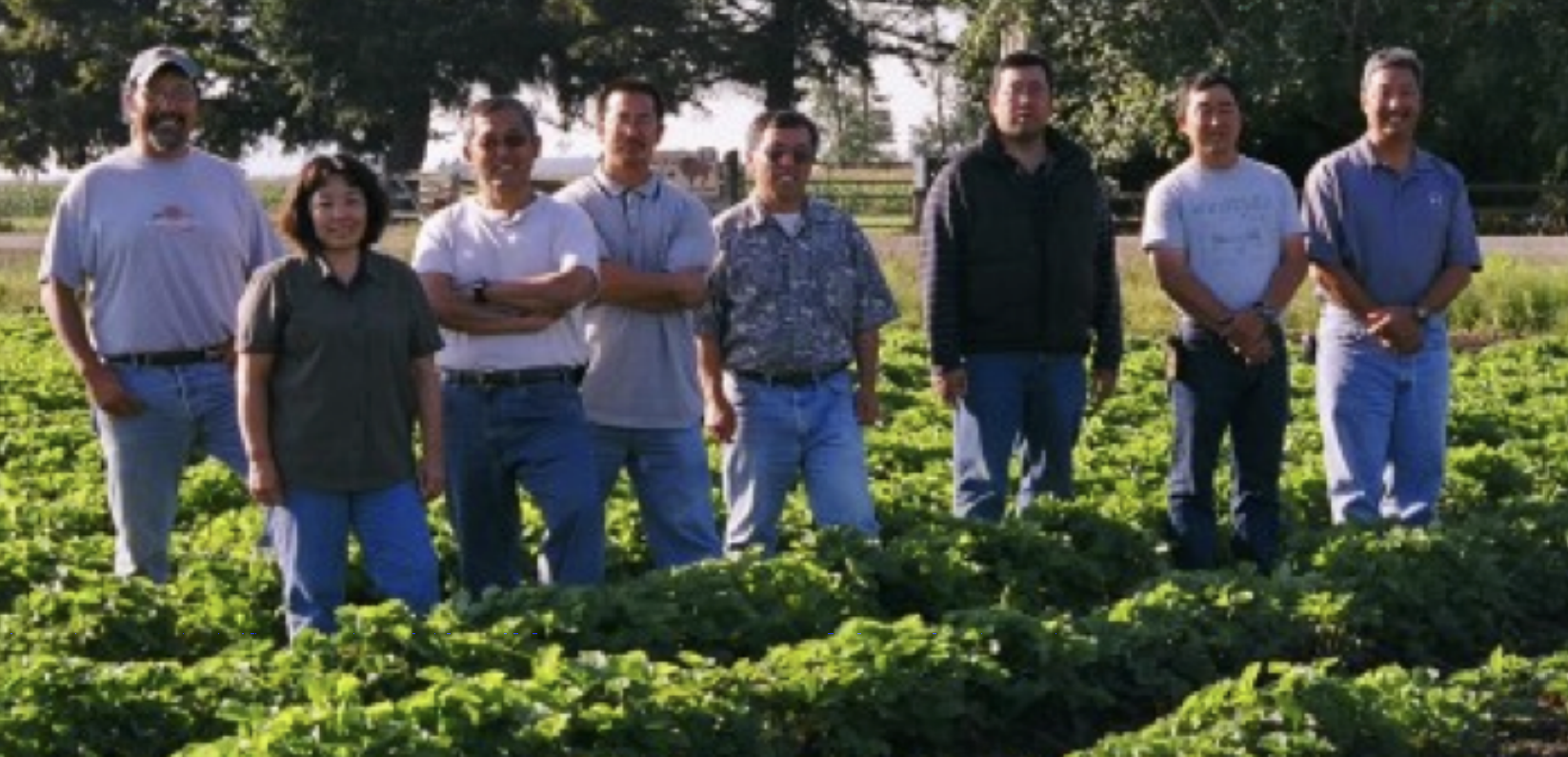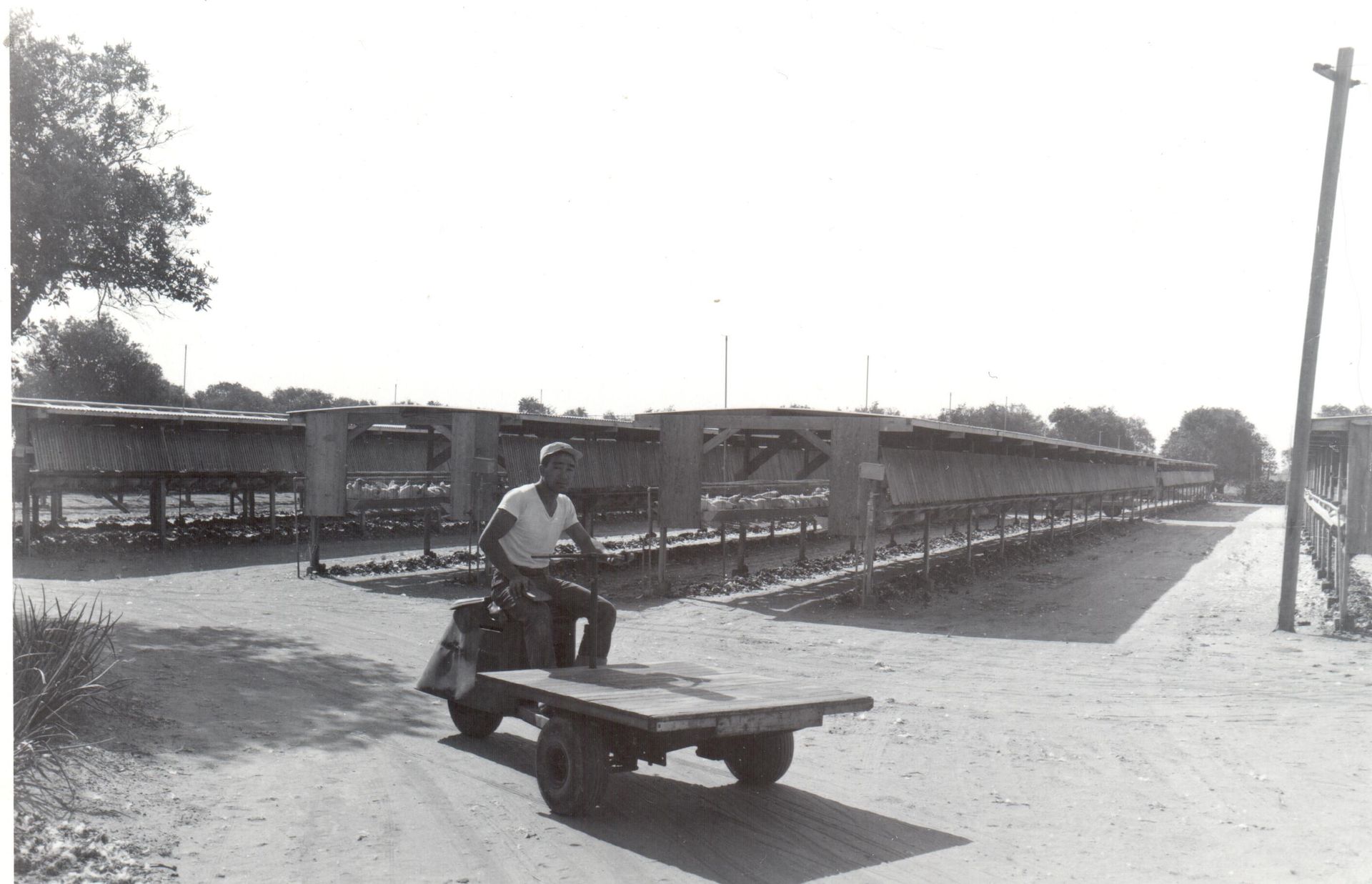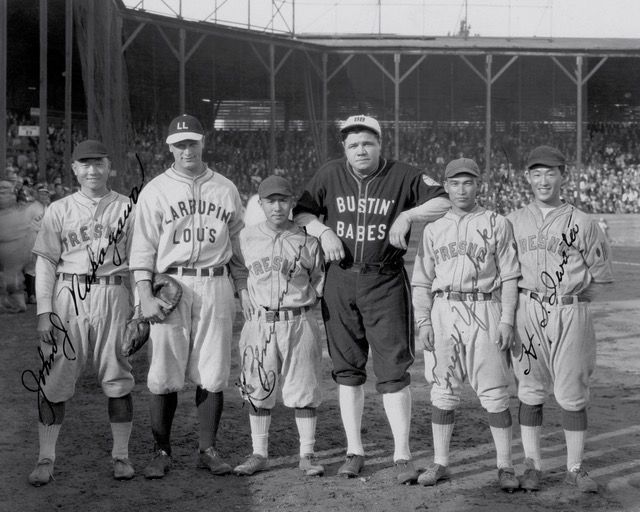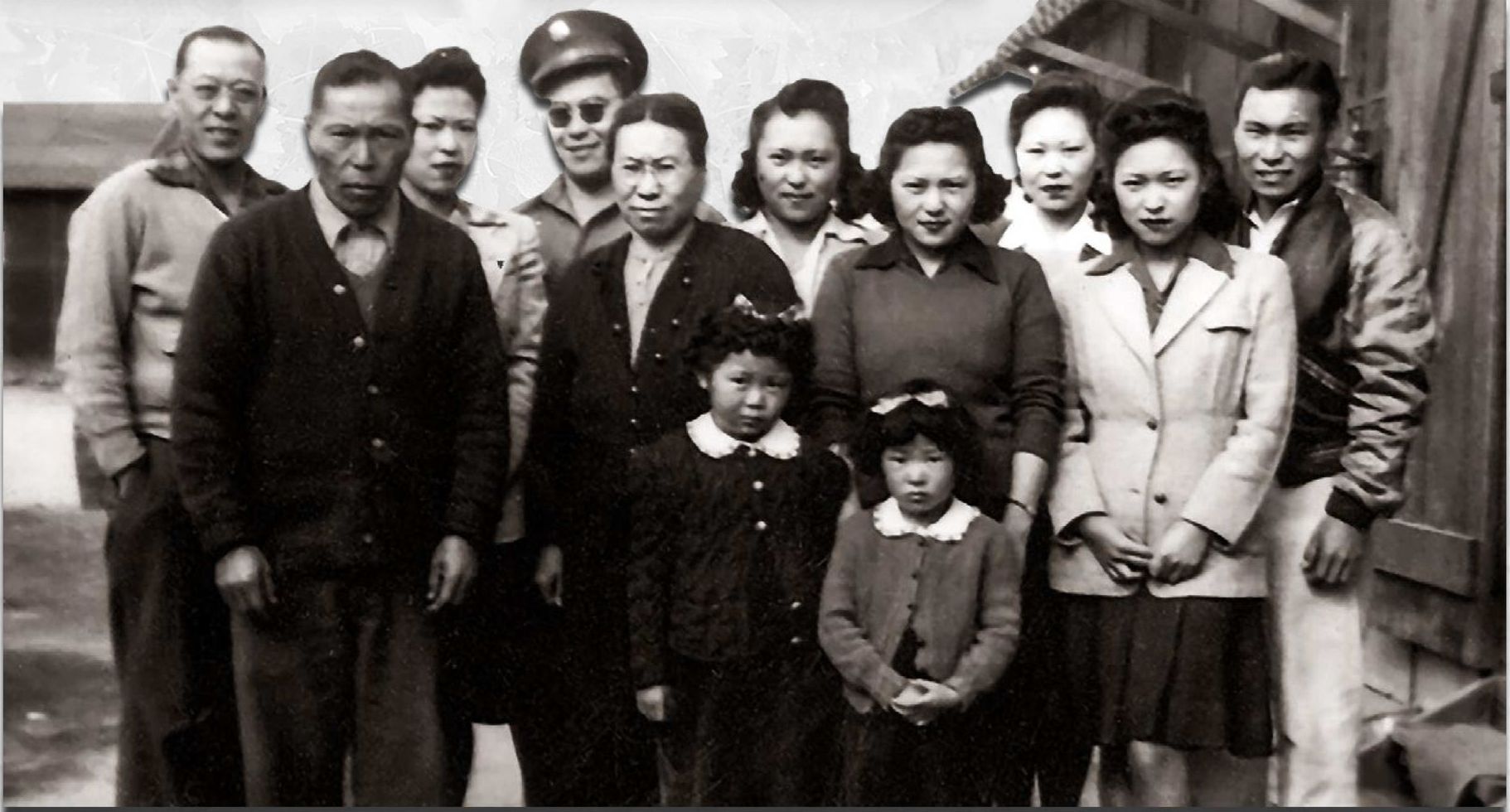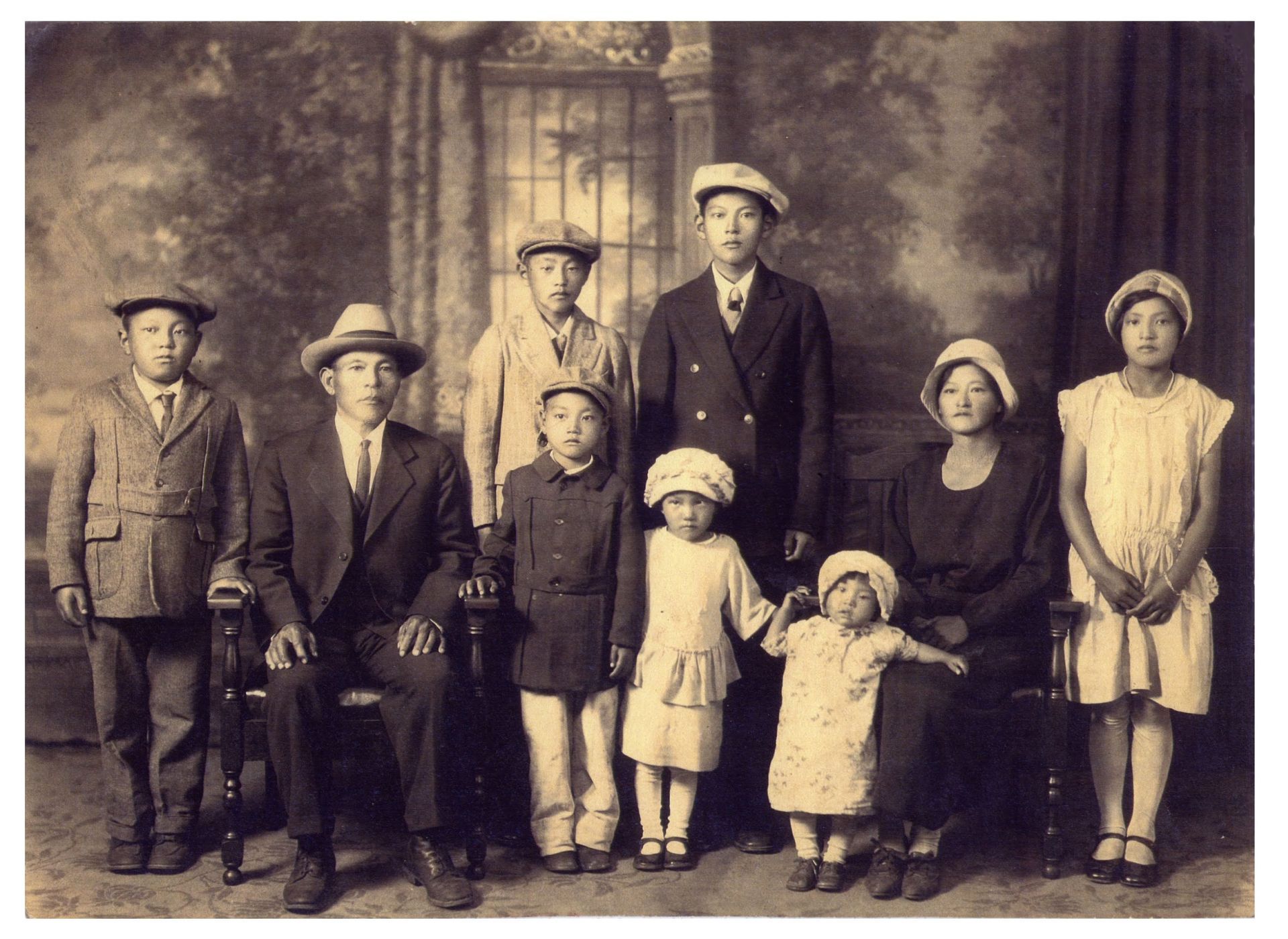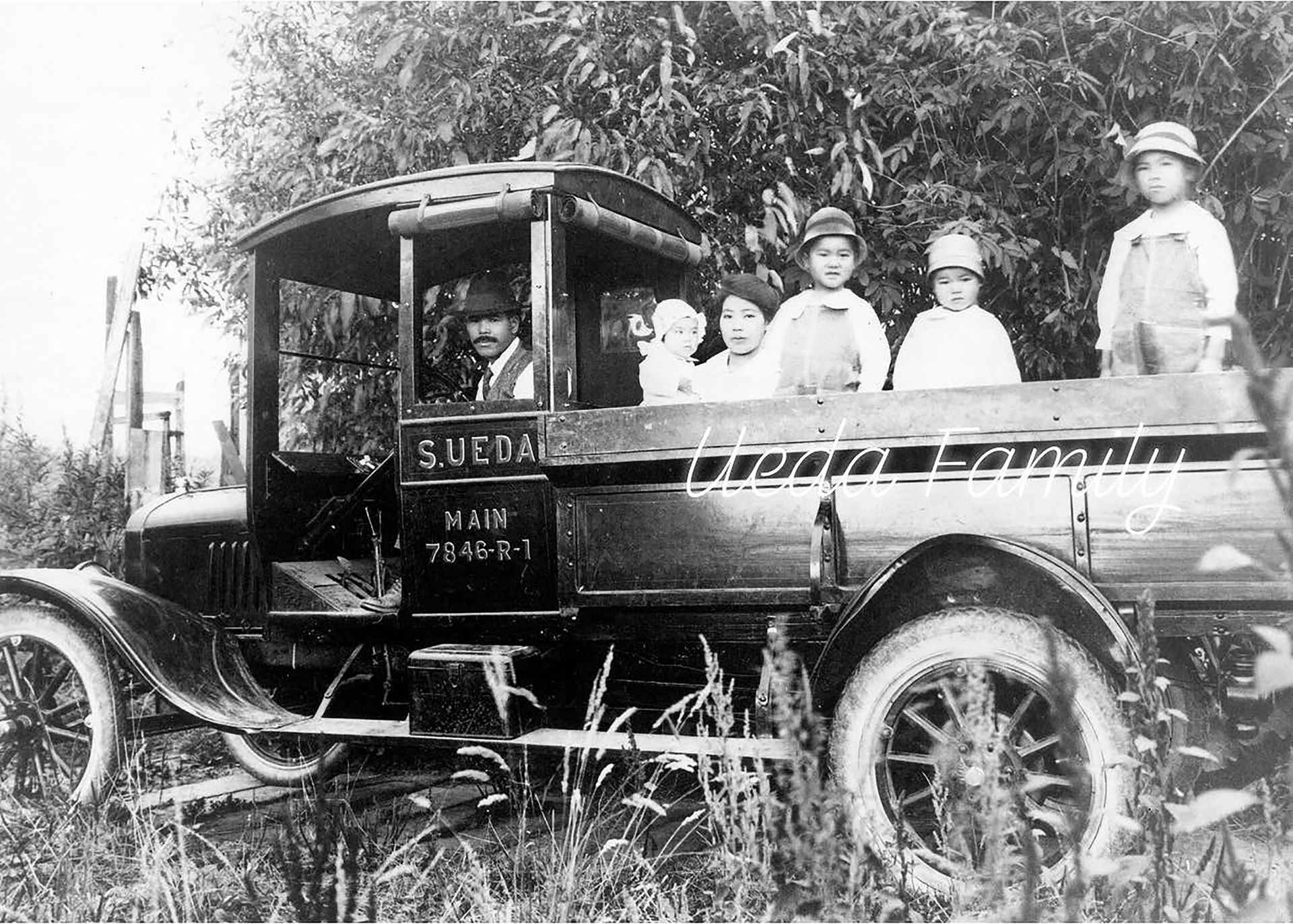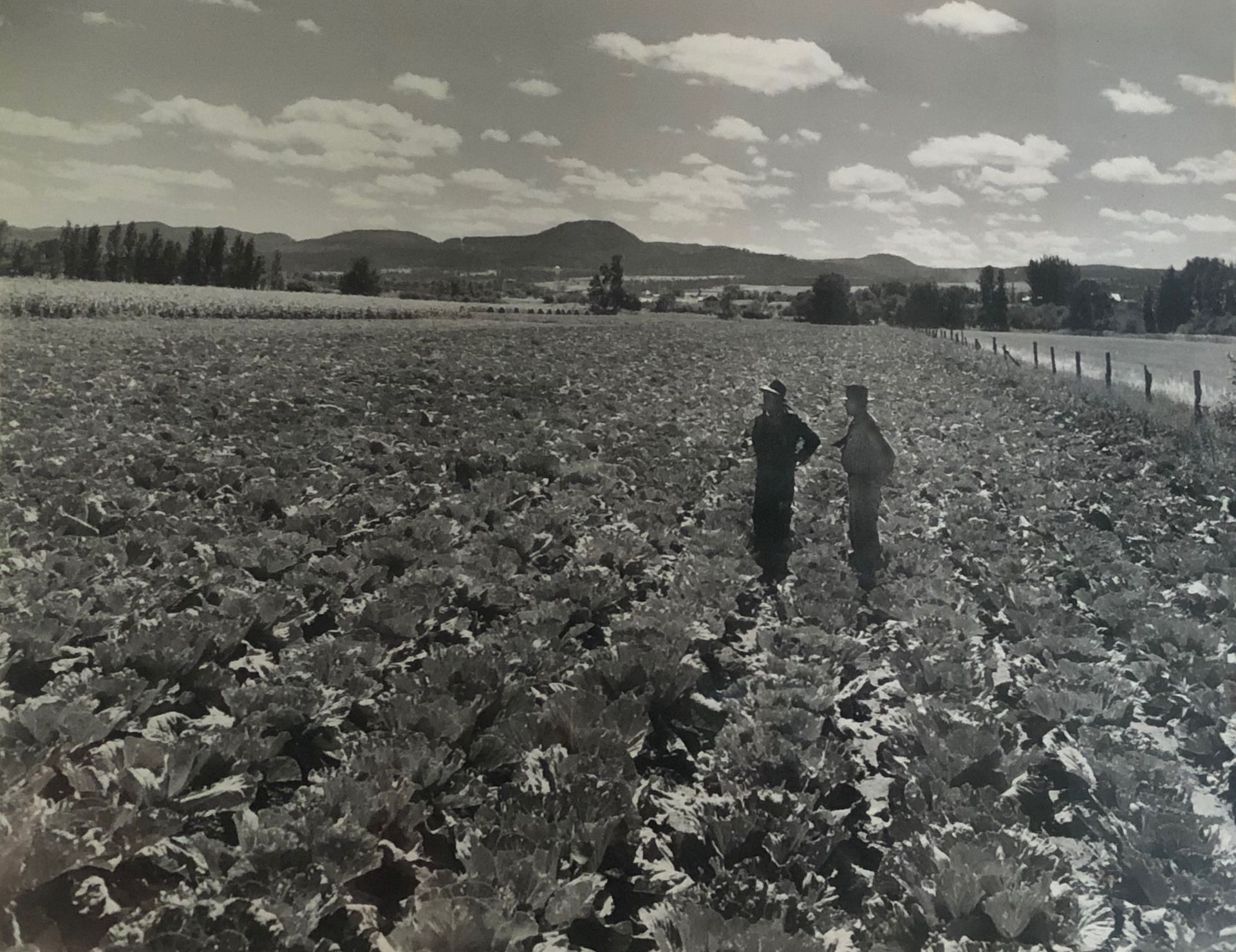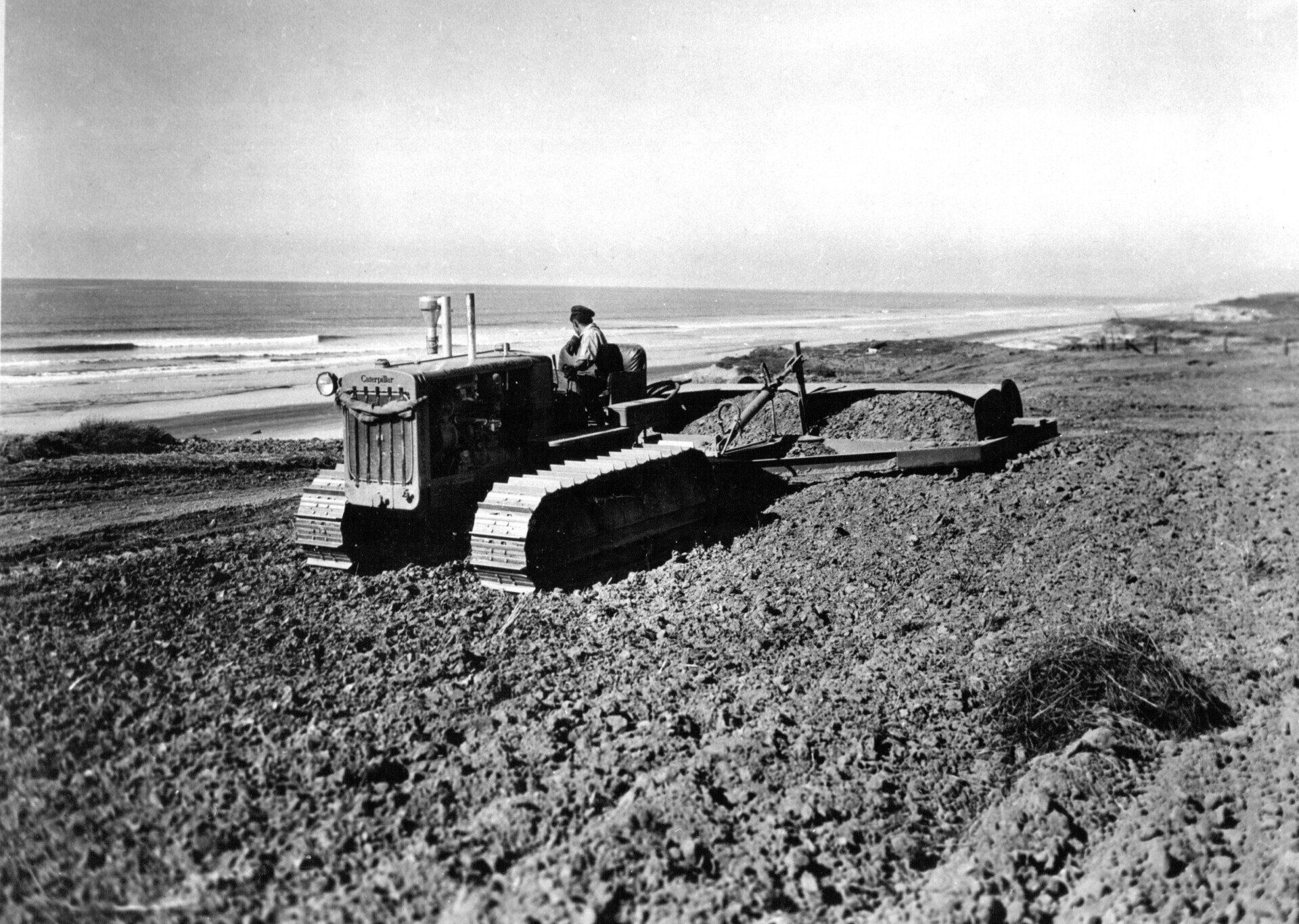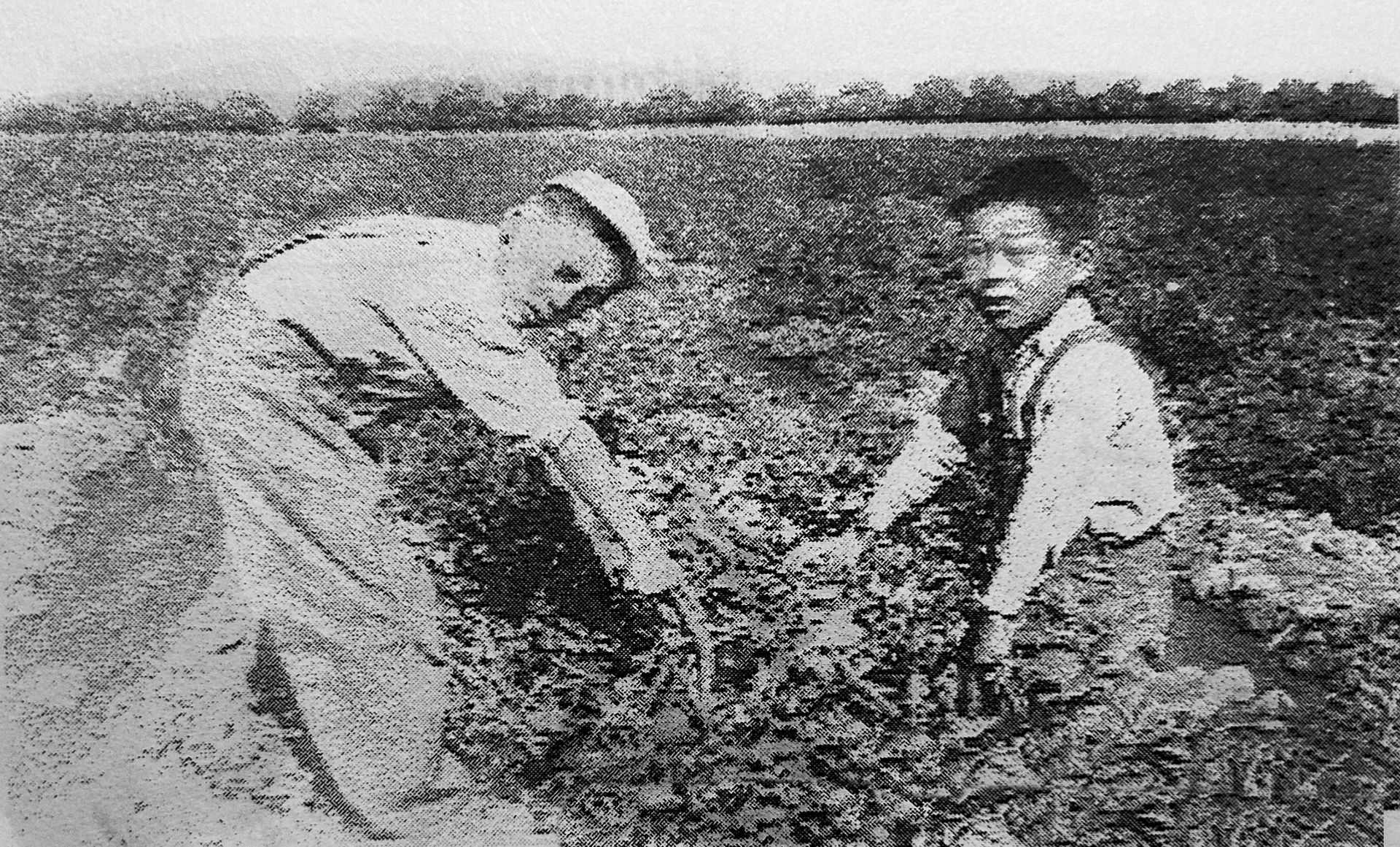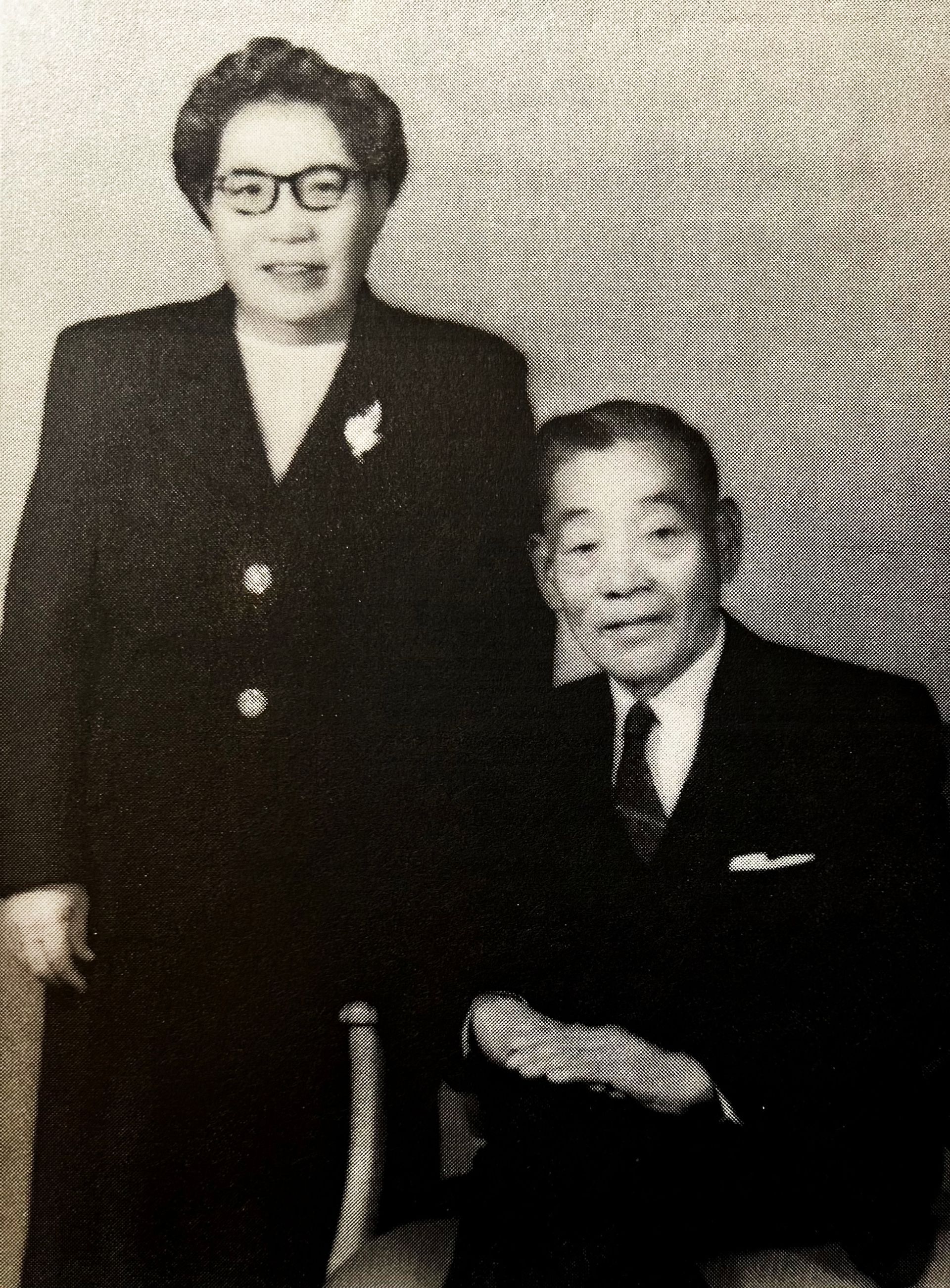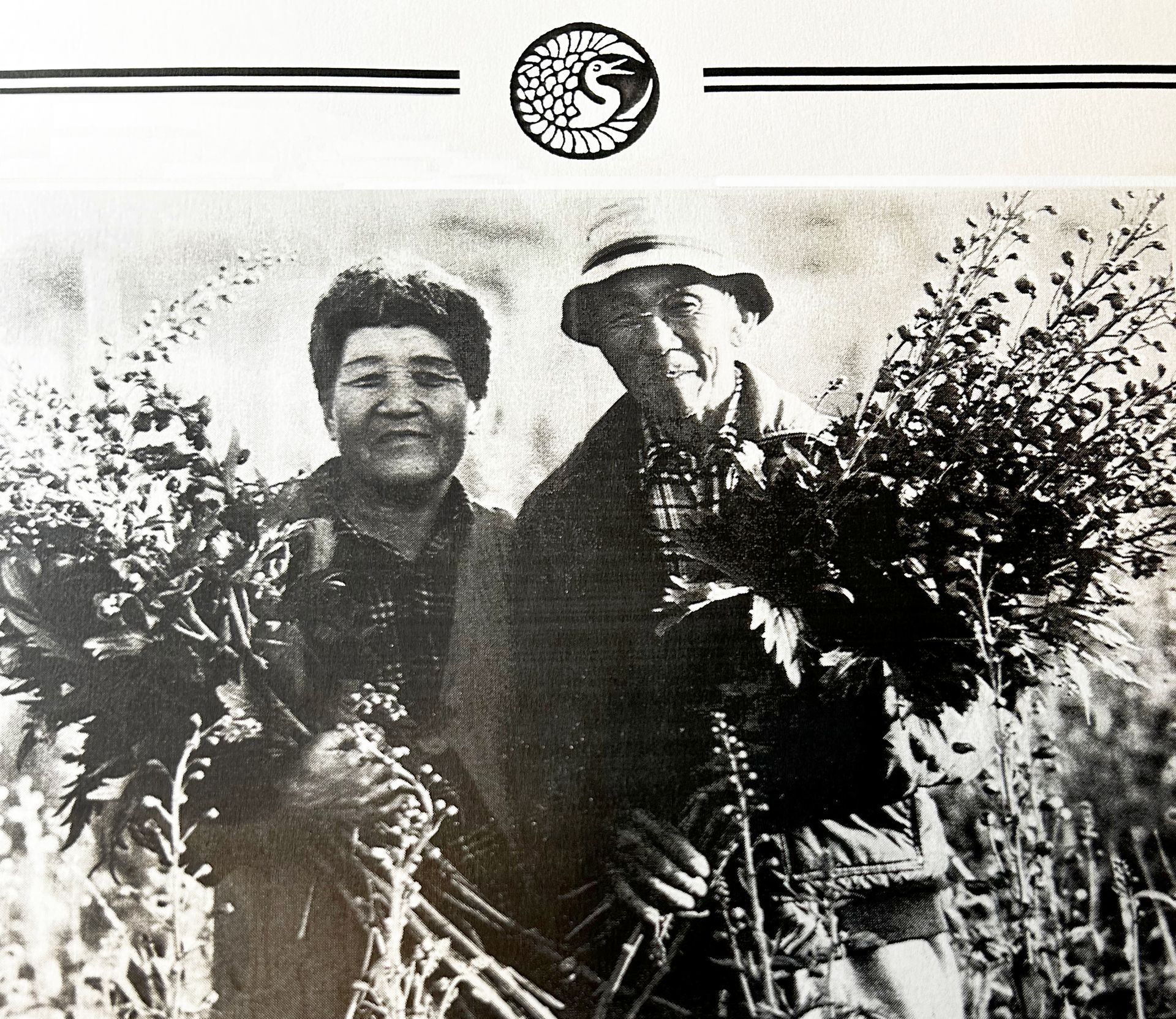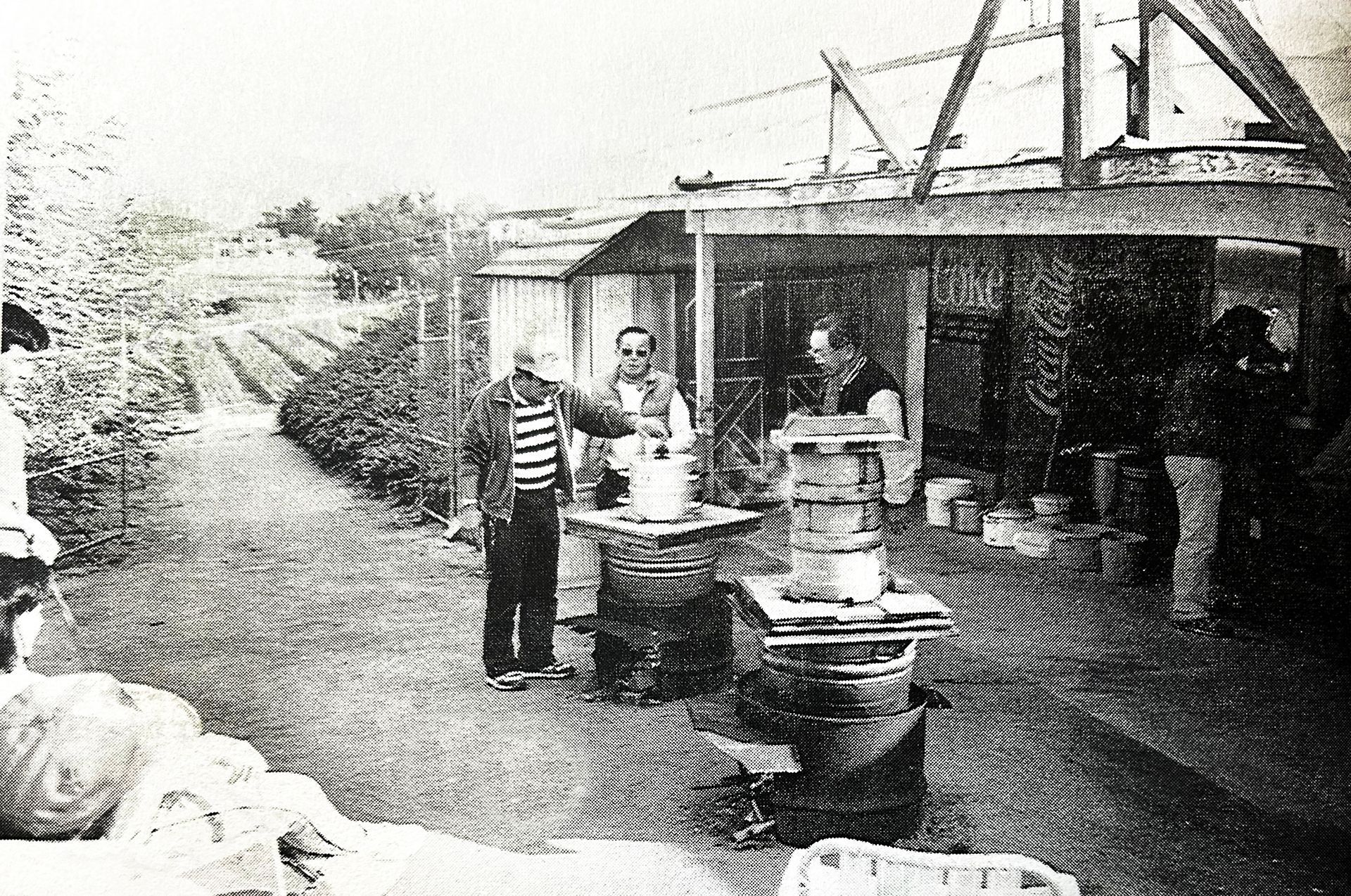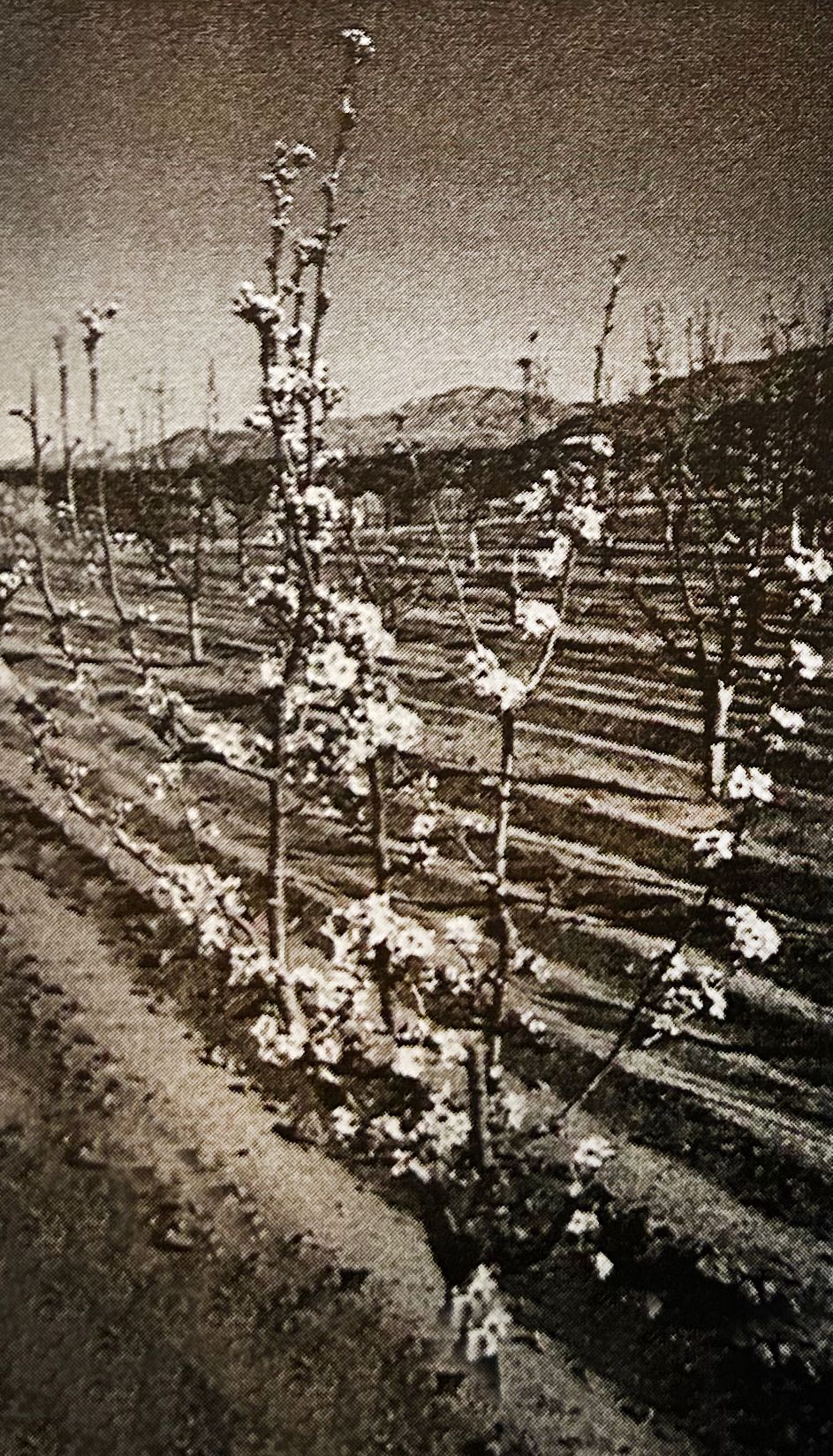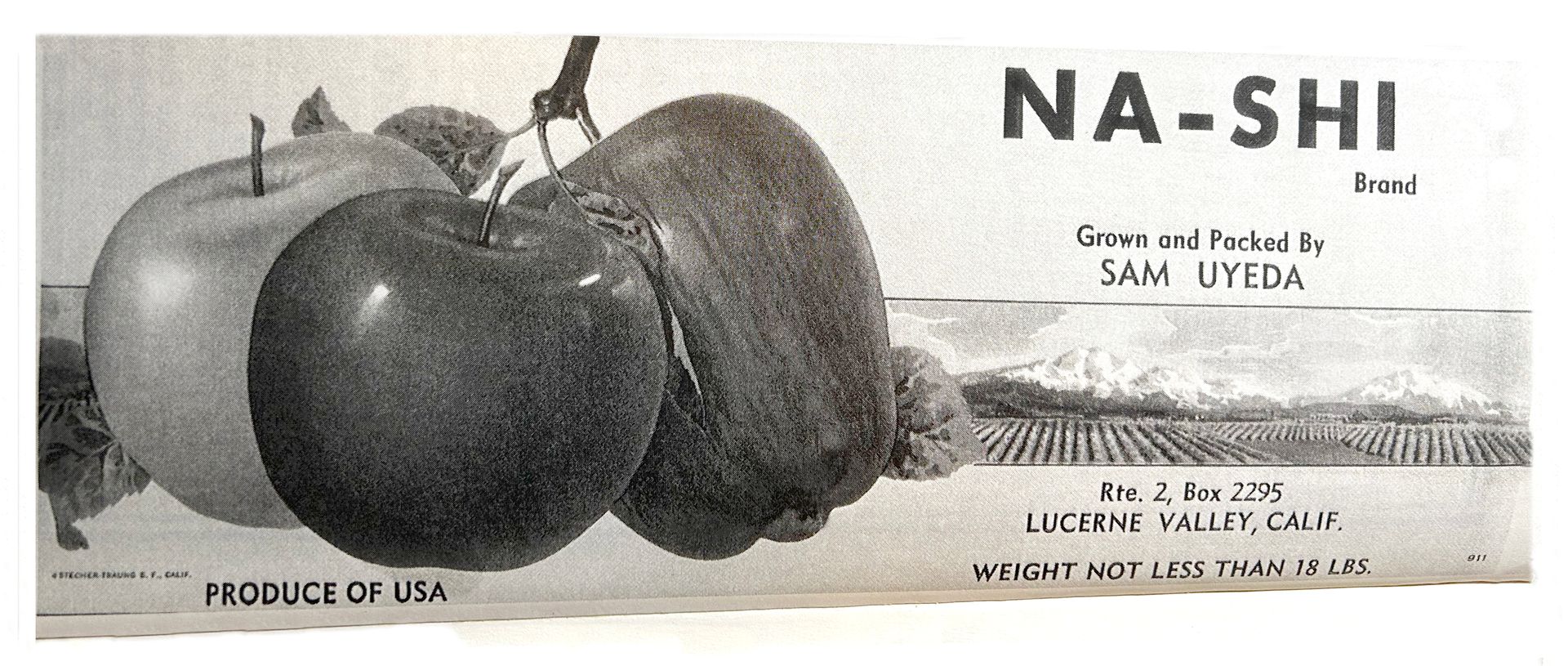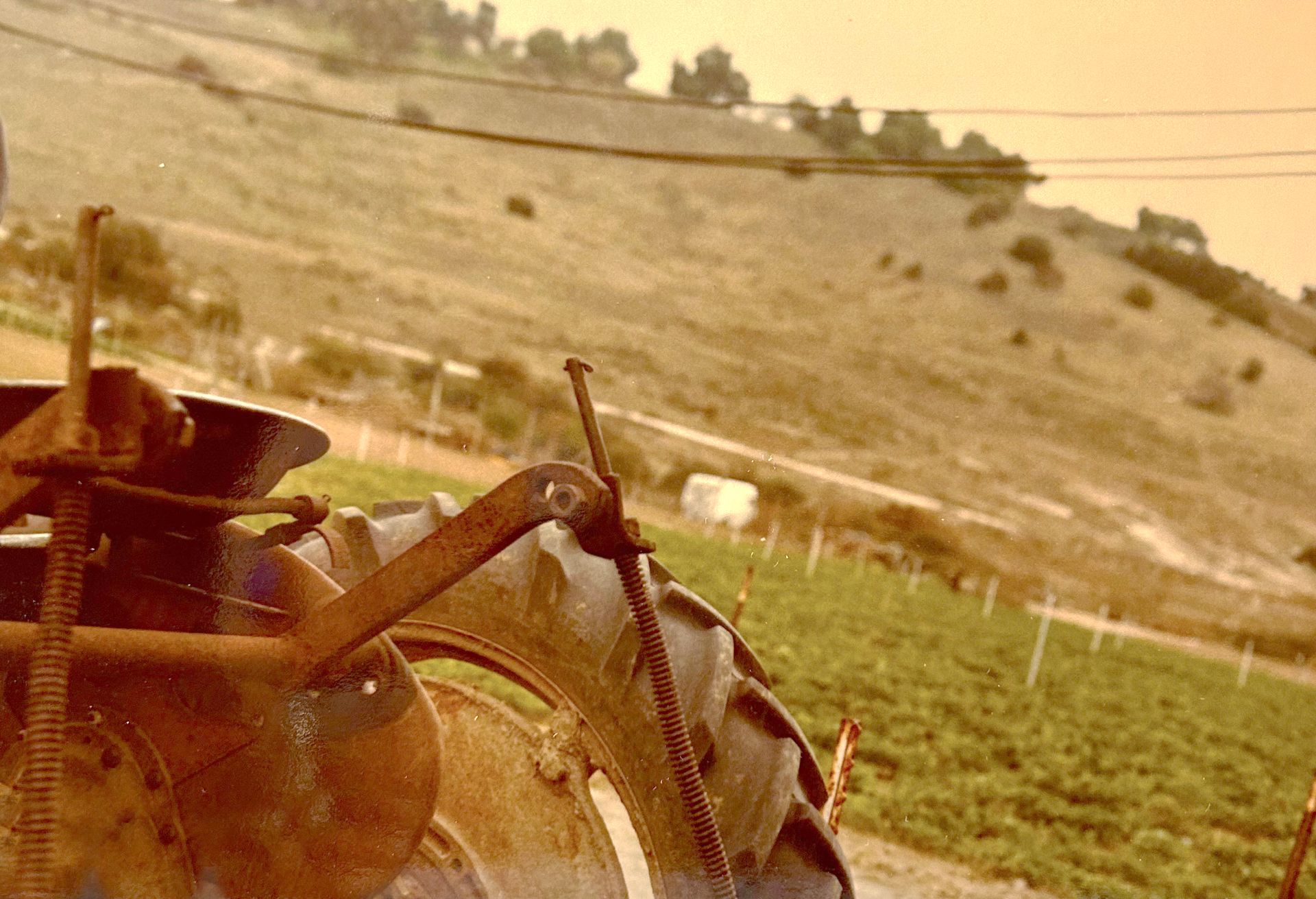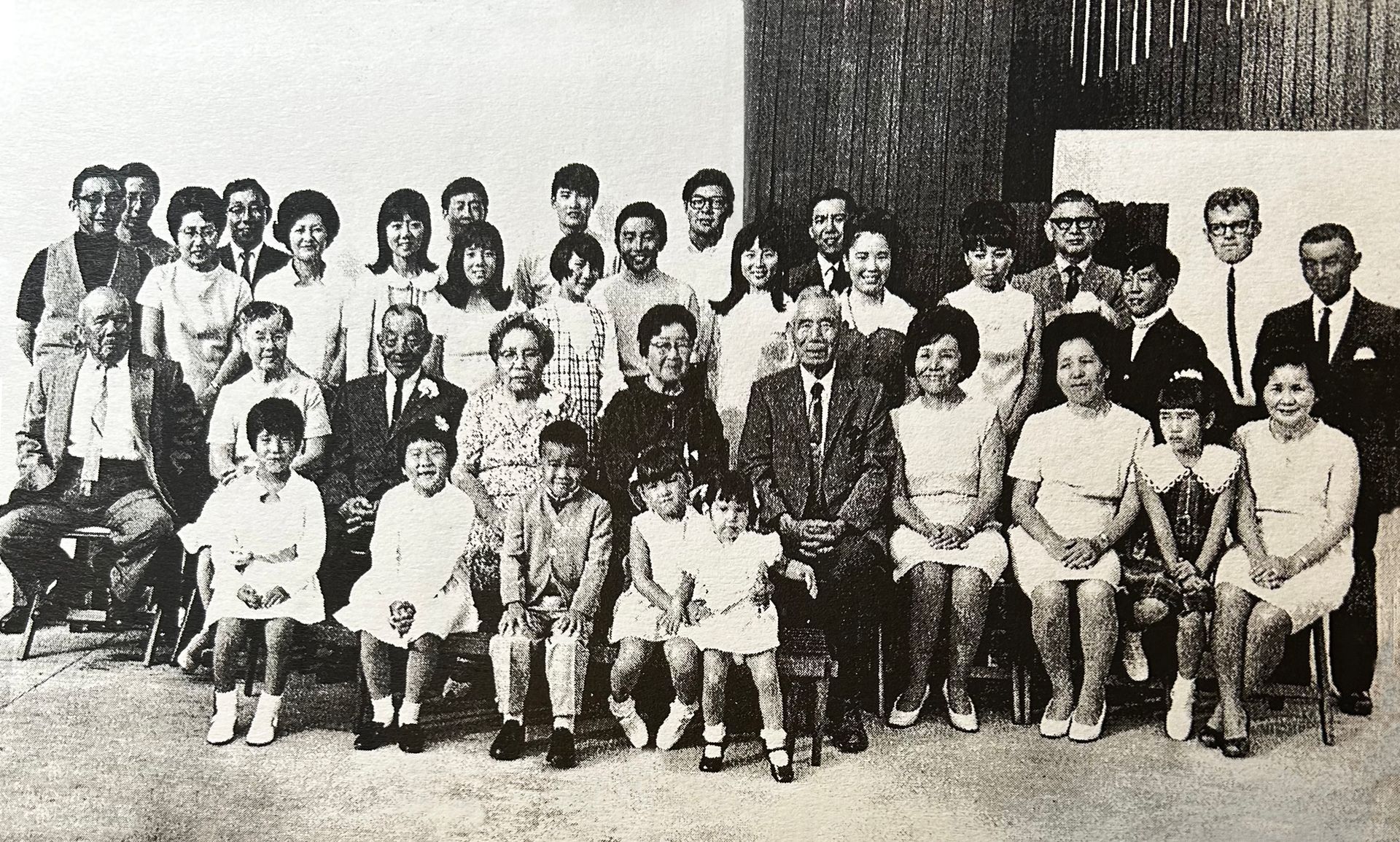Uyeda and Kudo Farms
Story as told by Elayne Shiohama and extended family:
In 1917, Sanzo Uyeda sailed from Chikushino, Fukuoka-ken, Japan to San Francisco seeking a better future for him and his wife, Wasa, née Kawaguchi. He found work on a Caucasian family’s farm in Cutler, California.
Wasa and Sanzo had two girls and two boys, starting with Mitsue, my dad Nobuo (later named Jimmie by a neighbor who couldn’t pronounce Nobuo), born June 17, 1921, then Kimiye, and lastly, Joe. As a youngster, my dad accompanied his father in many trades, including truck farming and running a pool hall in Lindsay. They farmed the area until WWII, 1941. Sanzo was torn away from the family when the FBI sent him to a prison camp in Santa Fe, New Mexico due to his membership in a kendo club. The daughters, married with families of their own, were interned, but Dad took his mother and little brother to Brigham, Utah. He worked on a sugar beet farm, in a cannery, cut the leather jackets for the US Bomber pilots, and also learned the building trade. Auntie Kimiye married a flower rancher and resided in San Diego County.
Upon release of the internees, the Uyedas returned to California in 1946. Although faced with discrimination, Dad and Grandpa eventually found work in the building trade. Dad married my mom in 1947. She grew up on a tomato farm in Pomona.
When Sanzo retired, he and Wasa moved to Lucerne Valley where his sons built a home. Two hours away from family, the ever busy Sanzo, built a koi pond and Japanese garden and grew Asian pears (nashi), for the Los Angeles markets for 15 years. He built a small “reservoir” but told the grandkids it was their swimming pool. He added a packing shed, refrigeration and taught Wasa, who never learned to drive a car, to drive the tractor. Stricken with cancer, Sanzo returned with Wasa to LA, where he passed away in 1976. Wasa remained in LA until her death circa 1986.
Jimmie and Joe circa 1928
Wasa and Sanzo Uyeda circa 1965
Kimiye and George Kudo, Kudo Flower Ranch in Vista, CA
Annual mochitsuki in Vista
Grandpaʻs nashi orchard, Apple Valley/ Victorville circa 1971
Apple Pear - Nashi label
Kudoʻs flower ranch
Uyeda clan circa 1978
